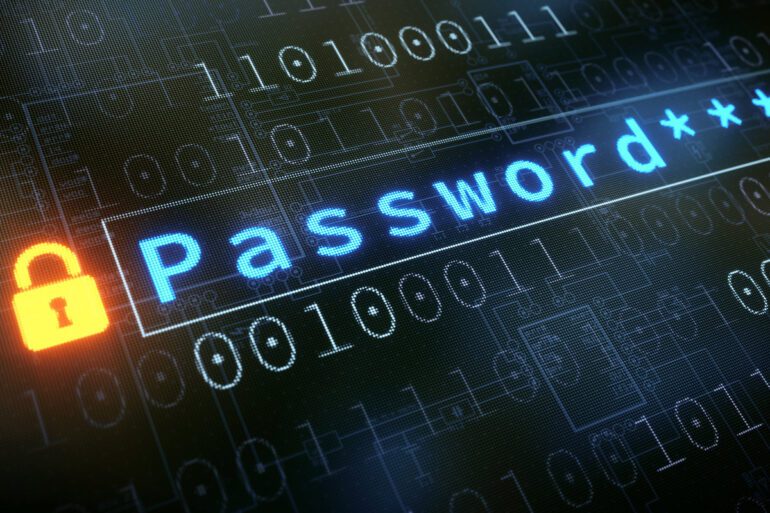TL;DR:
- Hackers are now utilizing artificial intelligence (AI) to crack passwords at an alarming rate.
- Traditional password-hacking methods like brute-forcing and dictionary attacks are still common and effective.
- Credential stuffing, where hackers use breached login credentials across multiple accounts, is a prevalent threat.
- Phishing remains a significant danger as scammers deceive users into disclosing their passwords through fake websites or communications.
- Cybercriminals share hacking techniques and develop sophisticated tools, posing a continuous challenge to security.
- To protect against password cracking, individuals should opt for longer, complex passwords and consider using passphrases.
- Adding fake words, unique characters, and unconventional phrases can strengthen password security.
- It is crucial to avoid reusing passwords and to stay vigilant by verifying website authenticity before entering passwords.
- Websites with weak password requirements should be avoided due to potential security vulnerabilities.
Main AI News:
In the ever-evolving landscape of cybercrime, hackers are now leveraging artificial intelligence (AI) to elevate their illicit activities. The emergence of AI-driven tools, such as PassGAN, has enabled hackers to crack an astounding 51% of scanned passwords in under a minute. This alarming trend underscores the pressing need for individuals and organizations to adopt a robust password strategy without delay.
Traditional Methods Reinvented
While various hacking techniques exist, certain methods have become notorious due to their effectiveness. Brute-forcing, for instance, involves automated programs rapidly generating numerous combinations of letters, numbers, and symbols, surpassing the speed at which a human criminal could operate. Astonishingly, hackers can attempt up to 100 billion possible passwords per second, rendering basic passwords highly vulnerable to exploitation.
Another common approach, the dictionary attack, employs a more intelligent form of brute-forcing. Hackers utilize words from dictionaries, company names, sports teams, and other widely used terms to swiftly crack passwords. This method capitalizes on the predictability of human password choices, making it even more expedient for cybercriminals to compromise accounts.
In the realm of credential stuffing, hackers leverage login credentials obtained from breached accounts to systematically test the same email and password combinations across various platforms and websites. This technique exploits the unfortunate reality that many individuals have had their passwords exposed in data breaches, making it crucial to adopt unique passwords for each online account.
The Perils of Phishing
Phishing represents another significant threat vector, whereby scammers employ convincing texts, emails, or other forms of communication to deceive individuals into divulging their login credentials or clicking malicious links. For instance, a deceptive notification urging users to change their passwords could lead them to a fake website where they unwittingly disclose their login details. Falling victim to such schemes inadvertently grants cybercriminals access to sensitive information.
Sharing Know-How and Exploiting Vulnerabilities
Cybercriminals actively collaborate and share successful hacking techniques within their circles. Free software tools like John the Ripper, Hashcat, and Ophcrack are constantly refined and made accessible to anyone interested in exploiting password vulnerabilities. This open exchange of knowledge allows hackers to stay ahead of security measures, posing a formidable challenge for individuals and businesses alike.
Fortifying Your Defenses
In light of these emerging threats, it is imperative to adopt proactive measures to safeguard your online accounts. Consider implementing the following guidelines to enhance your password security:
- Embrace Length: Opt for longer passwords that exceed minimum character requirements. An eight-character password composed solely of uppercase and lowercase letters can be cracked within 22 minutes, whereas a 12-character password incorporating symbols could take approximately 34,000 years to decipher.
- Passphrase Power: Instead of relying on single or double words, construct memorable “passphrases” and augment them with additional elements. For instance, transform “I love to visit Hawaii” into “iluv2v!s!tHawaii.”
- Embrace Complexity: Introduce fake words, unique characters, and unconventional phrases that thwart brute-force attacks and confound hackers attempting to crack your passwords.
- Diversify: Avoid predictable patterns like appending random numbers or punctuation marks at the end of your passwords. Instead, integrate them seamlessly into the password itself. For instance, replace the letter “O” with a zero or substitute characters that resemble certain letters.
- Stay Fresh: Never reuse passwords, even if they have not been employed for an extended period. Simply appending a new number to an old password is insufficient. Maintaining distinct passwords for each account is vital for robust security.
- Exercise Vigilance: Before entering your password, ensure that you are accessing a genuine website. Manually navigating to the site is always safer than clicking on links in emails or texts.
- Choose Wisely: Beware of websites that allow weak passwords like “password” or “123456.” Such lax practices raise concerns about the overall security of your personal information.
By adhering to these guidelines and adopting a proactive approach to password security, individuals and organizations can fortify their defenses against cybercriminals who exploit artificial intelligence to crack passwords. Stay one step ahead and protect your valuable digital assets from the ever-present threat of hacking.
Conlcusion:
The increasing adoption of artificial intelligence by cybercriminals to crack passwords poses a significant challenge to the market. This trend highlights the pressing need for individuals and businesses to enhance their password security strategies. As hackers continue to refine their techniques and share knowledge, the market must respond with robust cybersecurity measures, innovative solutions, and user education.
Failure to address this evolving threat could result in compromised accounts, data breaches, and reputational damage. Proactive measures, such as implementing stronger passwords, adopting multi-factor authentication, and staying informed about emerging threats, will be essential for safeguarding the market against cybercriminals leveraging artificial intelligence.

